Mystics Color Analyst



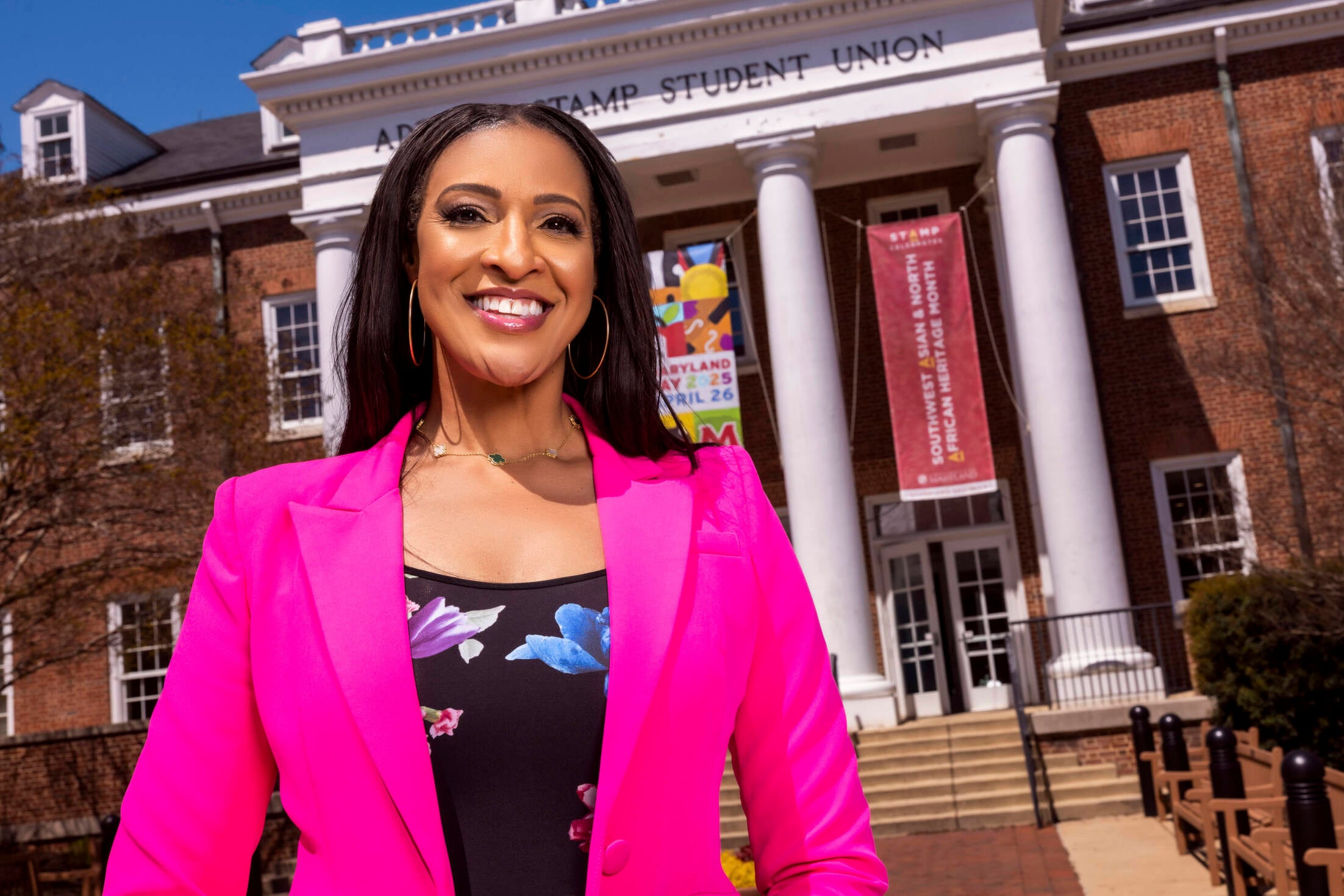
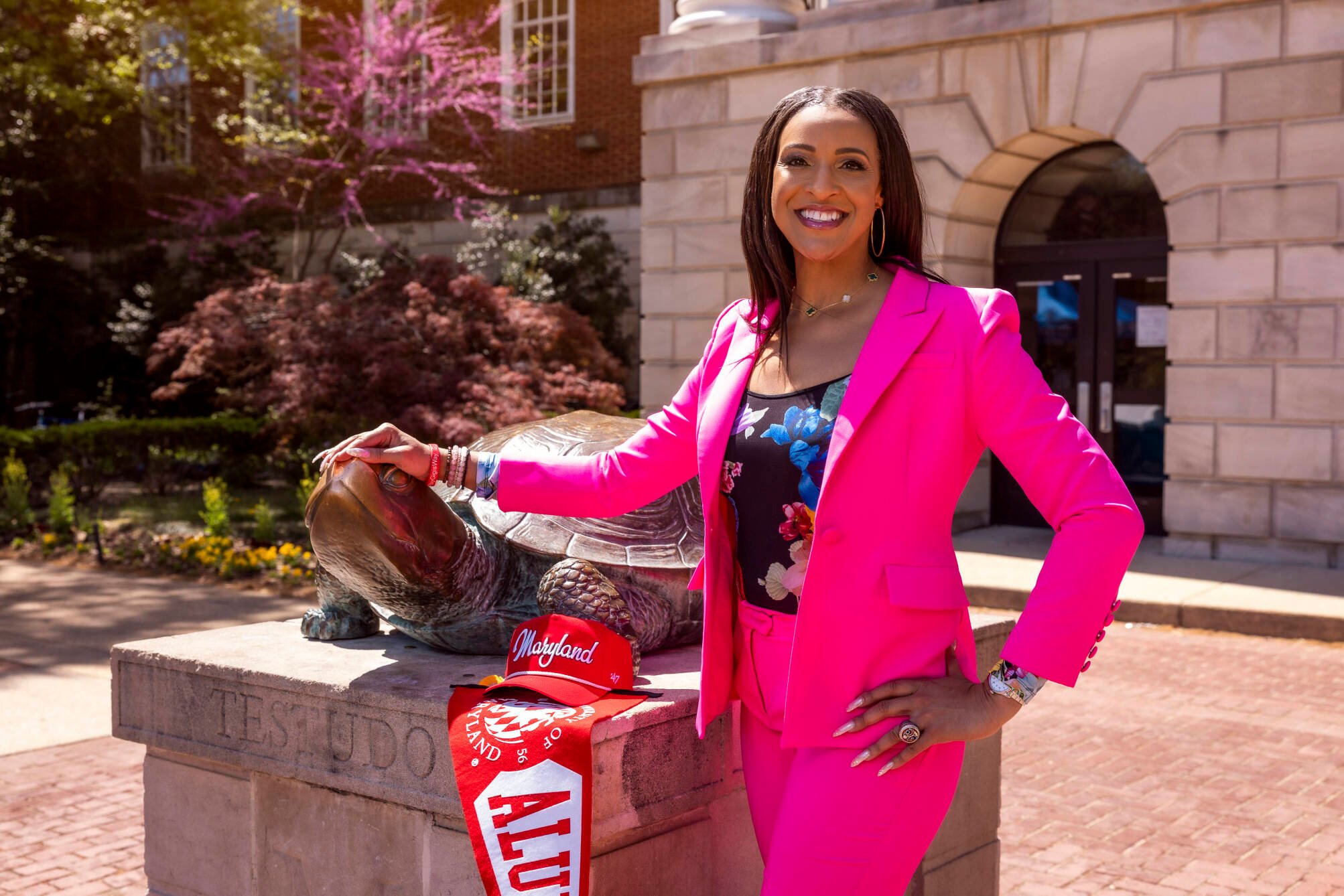
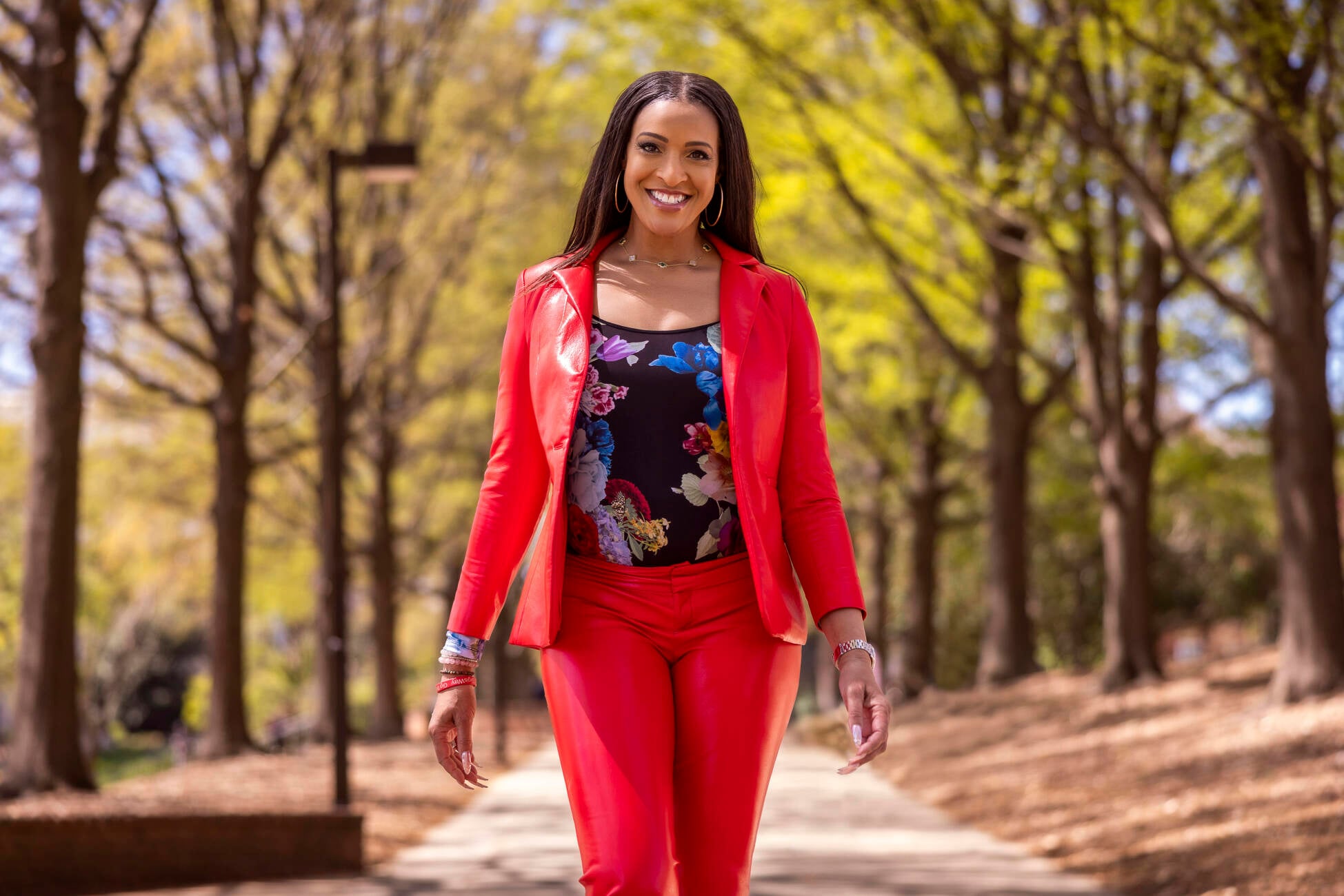
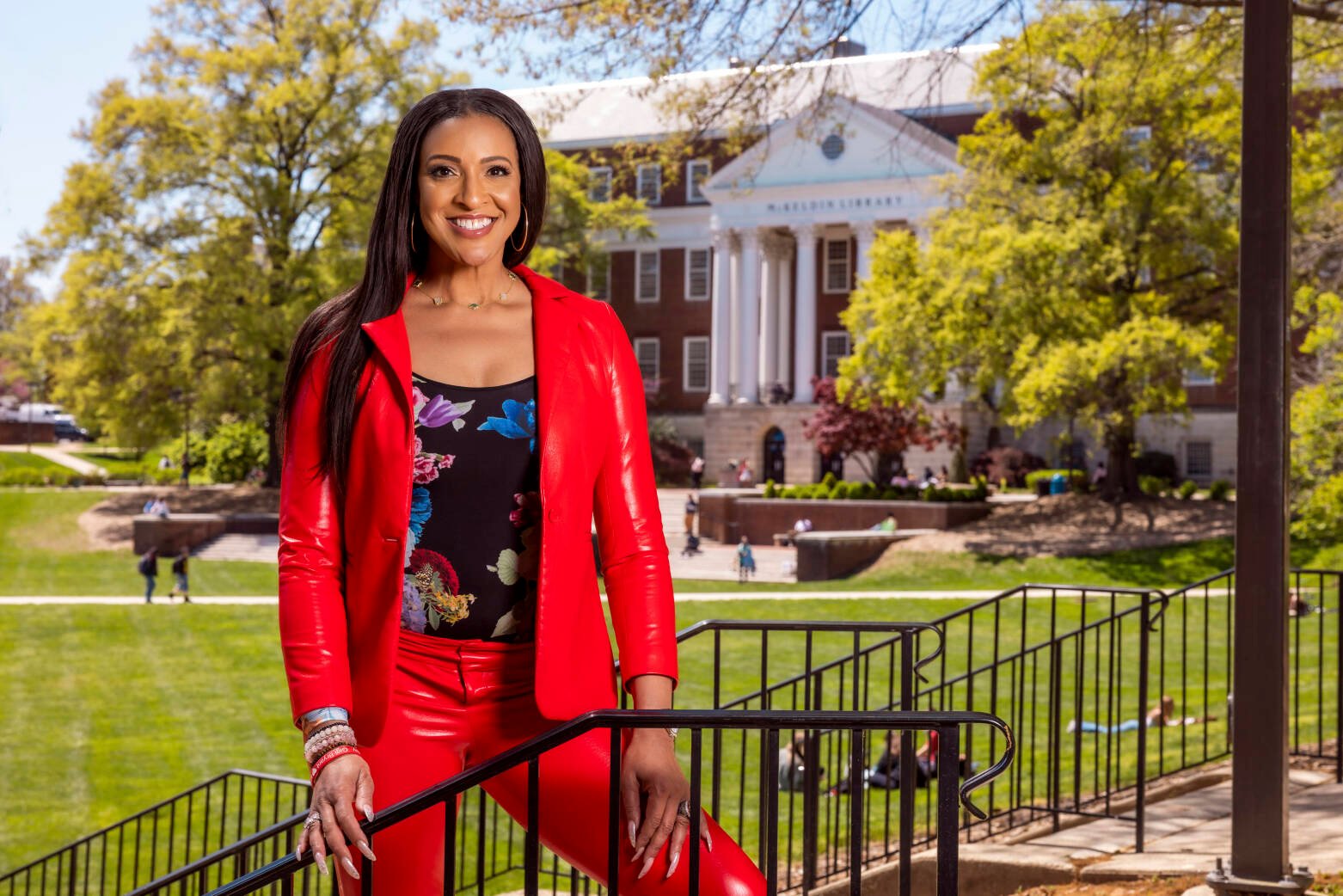
For the Love of the Game
Team First, Not First Team
The lesson stuck: Don’t let the last play define the next one.
“Maryland had that family feel,” she says. “And my family could actually be there.”
The Terps, fresh off an ACC Championship, welcomed her into their underdog story. It was a perfect fit for a player who carried a bit of that fight in her.
“I was 6'1" and 136 pounds,” she says. “I always had that underdog mentality.”
At Maryland, Winters Scott made her mark. She helped the Terps capture another ACC title and led them to their third Final Four appearance in 1989, finishing her senior year with a team-high 533 points and First Team All-ACC honors.
It wasn’t all smooth, though. Her junior year, the team lost in the Elite Eight, a defeat made even harder because championship rings had already been measured.
“Sometimes it takes losing to win,” she says. “When you're hungry, it just tastes better when you finally get it.”
So, she pivoted again—and found her new lane.
Today, as the Mystics' color analyst on MNMT, Winters-Scott brings every chapter of her journey to the mic: the wins, the losses, the resilience, the love.
Her advice for young athletes now reflects the lessons she’s lived.
“Whatever it is—basketball or otherwise—when you know better, you do better next time,” she says. “Don’t let errors hold you back from keeping the main thing the main thing, and that's the next thing.”
For Christy Winters Scott, that's where the real victory lies: not in avoiding the fall, but in always playing the next play.
Coaching filled her heart, but eventually, life threw another hard choice her way.
One year, she, her son Jordan, and her daughter Brianna all had games on the same night. She realized she couldn’t be everywhere at once.
“I was struggling that year,” she says. “They were freshmen. And I was struggling.”
She sat her kids down and asked: Should she stop coaching and move into broadcasting?
“And then my youngest, Jordan, says, 'But Mom, you love coaching.' And that was it for me,” she says, her voice catching. “I didn't want him to think I loved coaching more than I loved them.”
With no WNBA yet, Winters Scott took her talents overseas, playing in Italy and Switzerland.
“It was crazy. But for the love of the game, I wanted to do it,” she said. “And I didn't want to do it forever over there, because there wasn't internet and all this stuff. I was just over there detached.”
So, when the pull of home grew too strong, she pivoted again, finding a new way to stay connected to basketball: coaching.
She spent nine years coaching at George Mason, Georgetown, and Maryland before returning to her alma mater to coach at South Lakes High School, eventually leading her daughter Brianna's team.
But this time, she brought a new playbook.
“When I was playing, we didn’t have an ear to talk to,” she says. “We were our own guidance counselors with the mental health side of it.”
She built her teams differently, giving young players the support and space she never felt she had.
“That’s what I want to be remembered for,” she says. “Hopefully I was a sound coach tactically, but more than anything, I hope they knew I cared.
Winters Scott grew up just outside D.C. in Reston, Virginia, where a household rooted in duty and compassion—and a backyard rivalry with her older brother—sparked her love for basketball.
She sharpened her skills at South Lakes High School, sharing courts and rides with a younger Grant Hill, who would later become an NBA legend. One afternoon at Twin Branches Park, she fed Hill a pass for what became her first alley-oop experience—even if it didn’t go exactly as planned.
“I dribbled and passed it back to him. I turned to see what he was going to do, and even though we were on the same team, I got dunked on,” she says, laughing.
Her senior year, Winters Scott led South Lakes to an undefeated 29-0 season and a state championship. But even then, she knew success was about more than wins.
“If you look at the stats, I still think I'd go back to how my parents raised us,” she says. “It's everybody. We're all part of the success.”
When college recruiters came calling, Winters Scott listened carefully.
She was drawn to schools with prestige, but more than anything, she wanted her family to be able to watch her play. That made the University of Maryland, just a short drive away, an easy choice.
What Wilbon—and many others—didn’t know was that just months earlier, Winters Scott had tried out for the Mystics as they built their first-ever roster. Out of nearly 200 hopefuls, she made it to the final 12 before being cut.
“I was number 305,” she remembers. “They called 301, then 307. I felt like I was about to throw up. I didn’t make it.”
It was another lesson in resilience: you miss a shot, you shake it off, and you move on to the next play. Eventually, you find yourself exactly where you're meant to be.
“It means everything for me to be here,” she says. “Even though I didn’t make the team, I feel like I’m part of the team now.”
As Christy Winters Scott emerged from the tunnel at the then MCI Center for the inaugural Washington Mystics game in 1998, she felt a lump start to form in her throat and a familiar prickly sensation pressed behind her nose. Her breath caught as emotion welled up.
Before she could even settle into her spot as a local TV broadcaster, ESPN’s Michael Wilbon pulled her aside for an interview. She spoke through the rising feeling, tears pooling at the corners of her eyes.
“When he wrote the article, he said, 'Teary-eyed, Christy Winters just really caught up in the moment because it’s a sellout and all these little kids are here,'" she recalls, smiling. “The event was beautiful. But that’s not why I was feeling that way.”
Mystics Color Analyst



Team First, Not First Team
As Christy Winters Scott emerged from the tunnel at the then MCI Center for the inaugural Washington Mystics game in 1998, she felt a lump start to form in her throat and a familiar prickly sensation pressed behind her nose. Her breath caught as emotion welled up.
Before she could even settle into her spot as a local TV broadcaster, ESPN’s Michael Wilbon pulled her aside for an interview. She spoke through the rising feeling, tears pooling at the corners of her eyes.
“When he wrote the article, he said, 'Teary-eyed, Christy Winters just really caught up in the moment because it’s a sellout and all these little kids are here,'" she recalls, smiling. “The event was beautiful. But that’s not why I was feeling that way.”
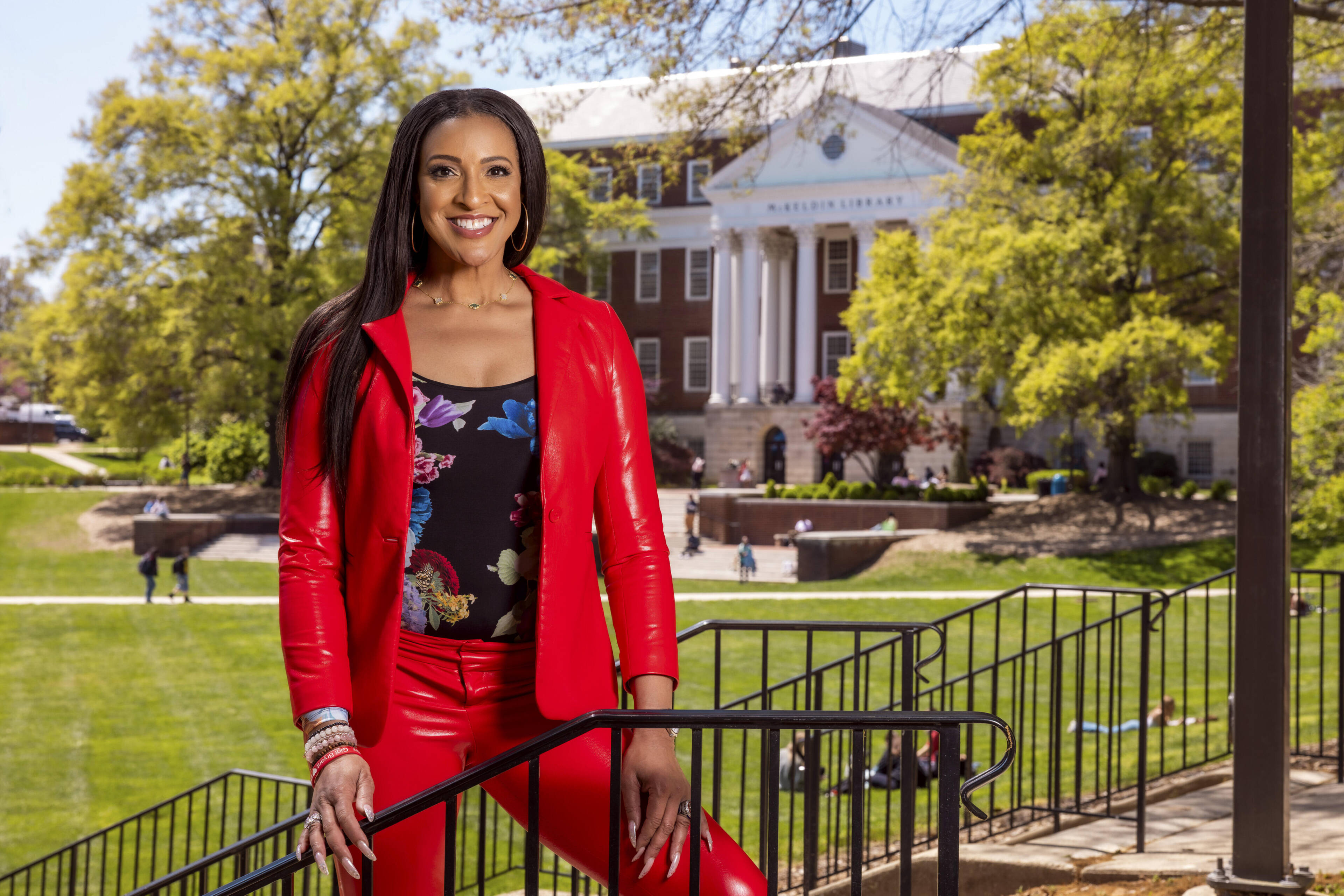
What Wilbon—and many others—didn’t know was that just months earlier, Winters Scott had tried out for the Mystics as they built their first-ever roster. Out of nearly 200 hopefuls, she made it to the final 12 before being cut.
“I was number 305,” she remembers. “They called 301, then 307. I felt like I was about to throw up. I didn’t make it.”
It was another lesson in resilience: you miss a shot, you shake it off, and you move on to the next play. Eventually, you find yourself exactly where you're meant to be.
“It means everything for me to be here,” she says. “Even though I didn’t make the team, I feel like I’m part of the team now.”
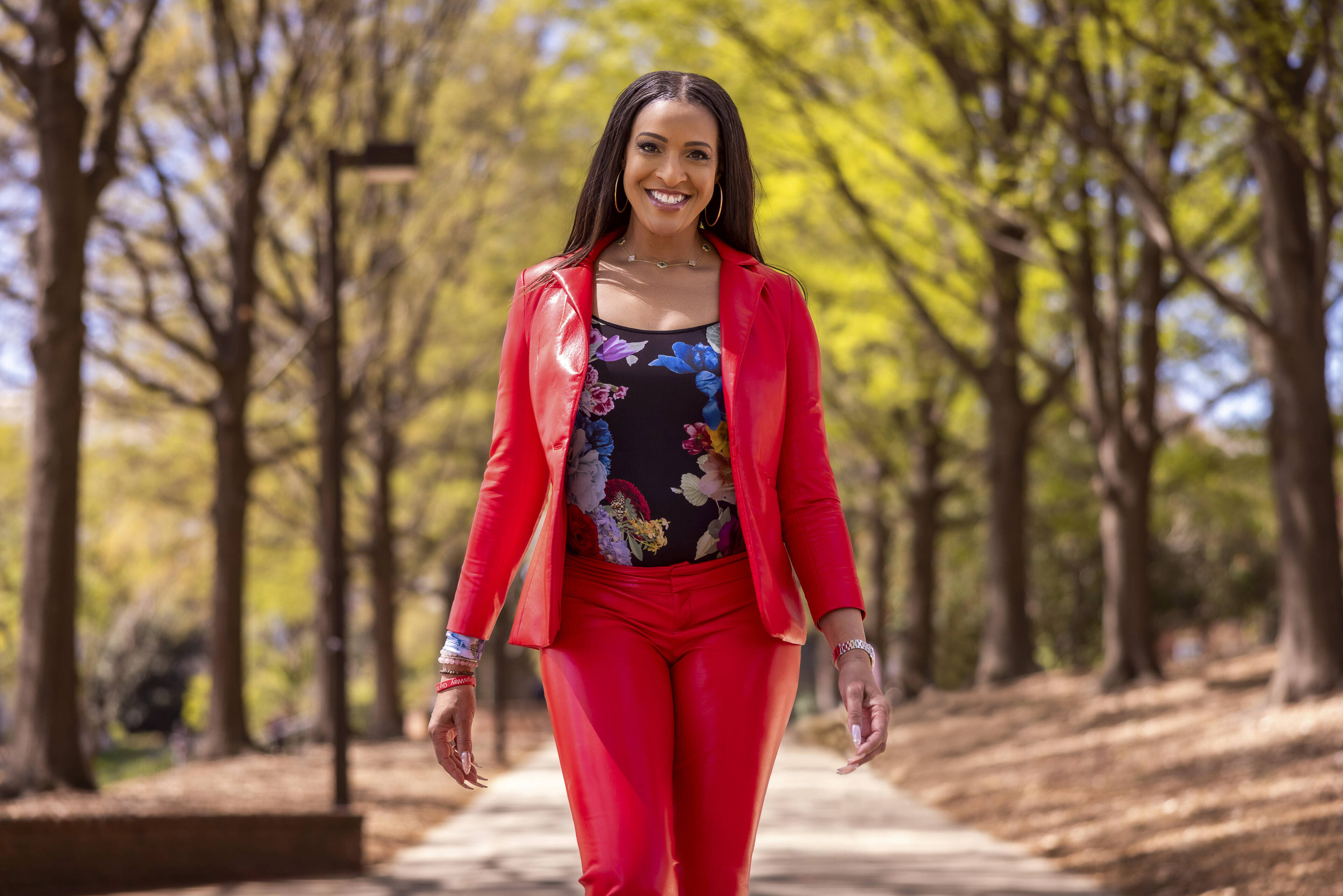
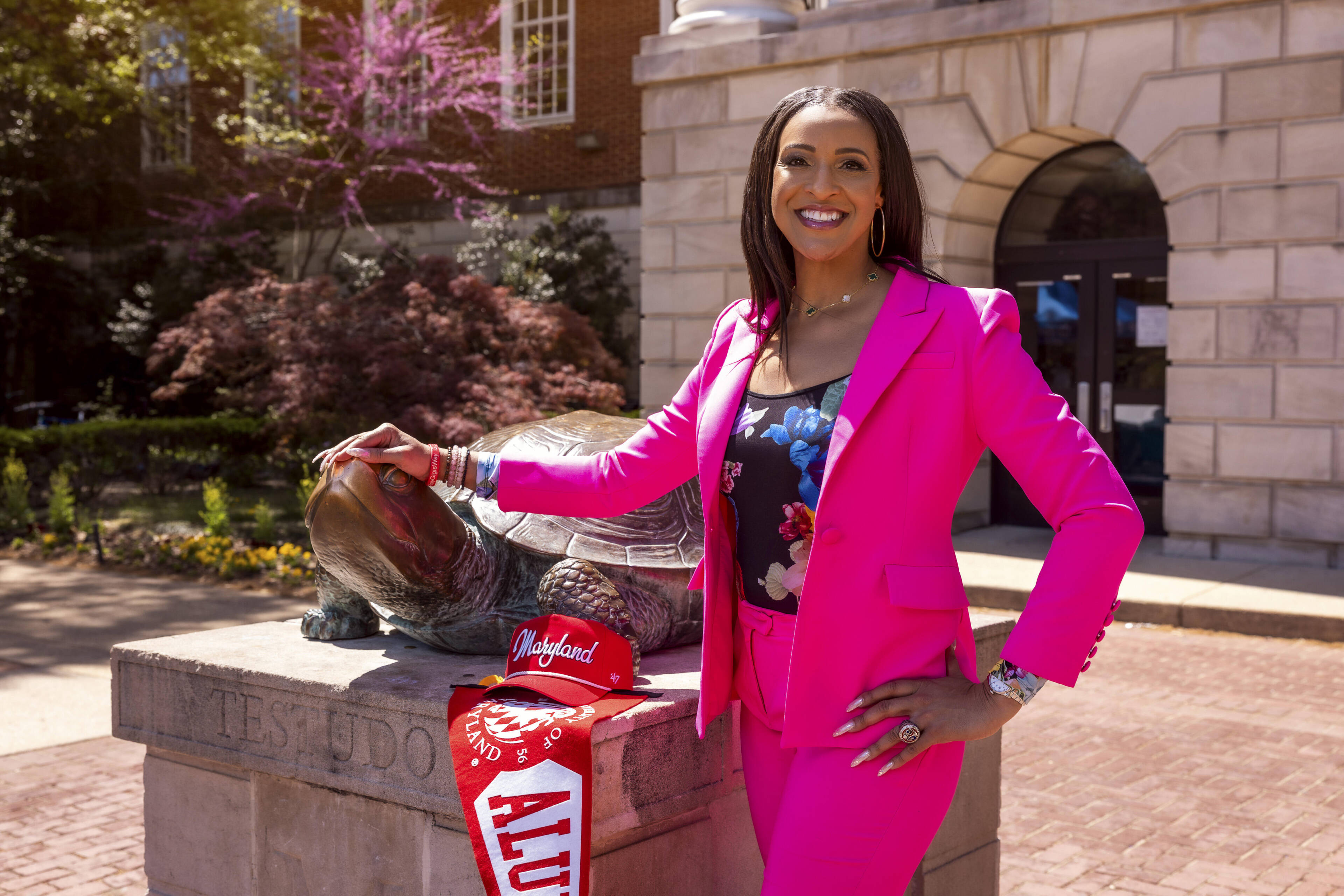
With no WNBA yet, Winters Scott took her talents overseas, playing in Italy and Switzerland.
“It was crazy. But for the love of the game, I wanted to do it,” she said. “And I didn't want to do it forever over there, because there wasn't internet and all this stuff. I was just over there detached.”
So, when the pull of home grew too strong, she pivoted again, finding a new way to stay connected to basketball: coaching.
She spent nine years coaching at George Mason, Georgetown, and Maryland before returning to her alma mater to coach at South Lakes High School, eventually leading her daughter Brianna's team.
But this time, she brought a new playbook.
“When I was playing, we didn’t have an ear to talk to,” she says. “We were our own guidance counselors with the mental health side of it.”
She built her teams differently, giving young players the support and space she never felt she had.
“That’s what I want to be remembered for,” she says. “Hopefully I was a sound coach tactically, but more than anything, I hope they knew I cared.
For the Love of the Game
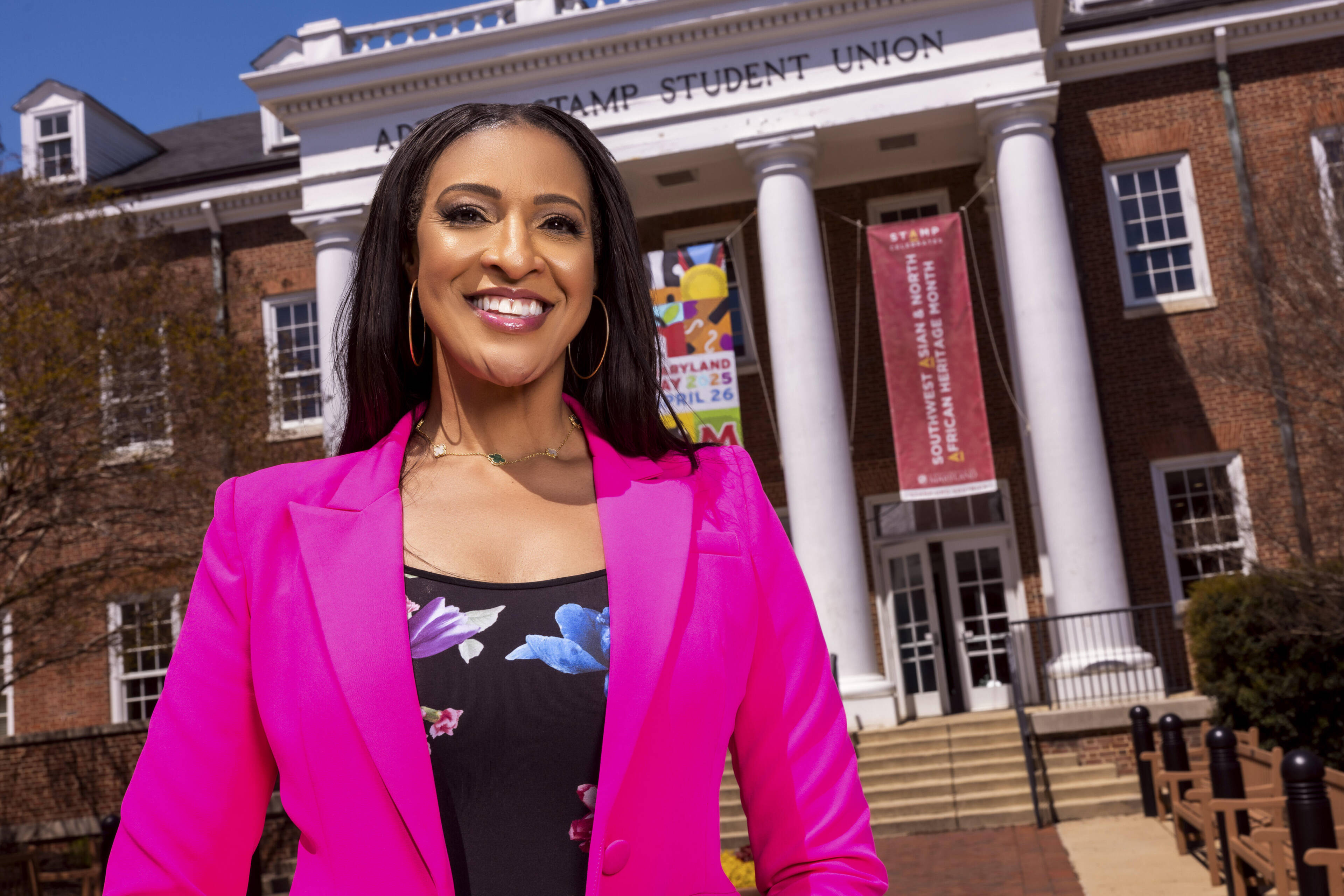
Coaching filled her heart, but eventually, life threw another hard choice her way.
One year, she, her son Jordan, and her daughter Brianna all had games on the same night. She realized she couldn’t be everywhere at once.
“I was struggling that year,” she says. “They were freshmen. And I was struggling.”
She sat her kids down and asked: Should she stop coaching and move into broadcasting?
“And then my youngest, Jordan, says, 'But Mom, you love coaching.' And that was it for me,” she says, her voice catching. “I didn't want him to think I loved coaching more than I loved them.”
So, she pivoted again—and found her new lane.
Today, as the Mystics' color analyst on MNMT, Winters-Scott brings every chapter of her journey to the mic: the wins, the losses, the resilience, the love.
Her advice for young athletes now reflects the lessons she’s lived.
“Whatever it is—basketball or otherwise—when you know better, you do better next time,” she says. “Don’t let errors hold you back from keeping the main thing the main thing, and that's the next thing.”
For Christy Winters Scott, that's where the real victory lies: not in avoiding the fall, but in always playing the next play.
“Maryland had that family feel,” she says. “And my family could actually be there.”
The Terps, fresh off an ACC Championship, welcomed her into their underdog story. It was a perfect fit for a player who carried a bit of that fight in her.
“I was 6'1" and 136 pounds,” she says. “I always had that underdog mentality.”
At Maryland, Winters Scott made her mark. She helped the Terps capture another ACC title and led them to their third Final Four appearance in 1989, finishing her senior year with a team-high 533 points and First Team All-ACC honors.
It wasn’t all smooth, though. Her junior year, the team lost in the Elite Eight, a defeat made even harder because championship rings had already been measured.
“Sometimes it takes losing to win,” she says. “When you're hungry, it just tastes better when you finally get it.”
Winters Scott grew up just outside D.C. in Reston, Virginia, where a household rooted in duty and compassion—and a backyard rivalry with her older brother—sparked her love for basketball.
She sharpened her skills at South Lakes High School, sharing courts and rides with a younger Grant Hill, who would later become an NBA legend. One afternoon at Twin Branches Park, she fed Hill a pass for what became her first alley-oop experience—even if it didn’t go exactly as planned.
“I dribbled and passed it back to him. I turned to see what he was going to do, and even though we were on the same team, I got dunked on,” she says, laughing.
Her senior year, Winters Scott led South Lakes to an undefeated 29-0 season and a state championship. But even then, she knew success was about more than wins.
“If you look at the stats, I still think I'd go back to how my parents raised us,” she says. “It's everybody. We're all part of the success.”
When college recruiters came calling, Winters Scott listened carefully.
She was drawn to schools with prestige, but more than anything, she wanted her family to be able to watch her play. That made the University of Maryland, just a short drive away, an easy choice.
The lesson stuck: Don’t let the last play define the next one.